Handbook of the History of Logic
Volume 1: Greek, Indian and Arabic Logic
Edited by
Dov M. Gabbay
Department of Computer Science
Kings College London
Strand, London, WC2R 2LS, UK
and
John Woods
Philosophy Department
University of British Columbia
Vancouver, BC Canada, V6T 1Z1
and
Department of Computer Science
Kings College London
Strand, London, WC2R 2LS, UK

Amsterdam-Boston-Heidelberg-London-New York-Oxford-Paris-San Diego-San Francisco-Singapore-Sydney-Tokyo
Copyright page

2004 Elsevier B.V. All rights reserved.
This work is protected under copyright by Elsevier B.V., and the following terms and conditions apply to its use:
Photocopying
Single photocopies of single chapters may be made for personal use as allowed by national copyright laws. Permission of the Publisher and payment of a fee is required for all other photocopying, including multiple or systematic copying, copying for advertising or promotional purposes, resale, and all forms of document delivery. Special rates are available for educational institutions that wish to make photocopies for non-profit educational classroom use.
).
In the USA, users may clear permissions and make payments through the Copyright Clearance Center, Inc., 222 Rosewood Drive, Danvers, MA 01923, USA; phone: (+1) (978) 7508400, fax: (+1) (978) 7504744, and in the UK through the Copyright Licensing Agency Rapid Clearance Service (CLARCS), 90 Tottenham Court Road, London W1P 0LP, UK; phone: (+44) 20 7631 5555; fax: (+44) 20 7631 5500. Other countries may have a local reprographic rights agency for payments.
Derivative Works
Tables of contents may be reproduced for internal circulation, but permission of the Publisher is required for external resale or distribution of such material. Permission of the Publisher is required for all other derivative works, including compilations and translations.
Electronic Storage or Usage
Permission of the Publisher is required to store or use electronically any material contained in this work, including any chapter or part of a chapter.
Except as outlined above, no part of this work may be reproduced, stored in a retrieval system or transmitted in any form or by any means, electronic, mechanical, photocopying, recording or otherwise, without prior written permission of the Publisher.
Address permissions requests to: Elseviers Rights Department, at the fax and e-mail addresses noted above.
Notice
No responsibility is assumed by the Publisher for any injury and/or damage to persons or property as a matter of products liability, negligence or otherwise, or from any use or operation of any methods, products, instructions or ideas contained in the material herein. Because of rapid advances in the medical sciences, in particular, independent verification of diagnoses and drug dosages should be made.
First edition 2004
Library of Congress Cataloging in Publication Data
A catalog record is available from the Library of Congress.
British Library Cataloguing in Publication Data
A catalogue record is available from the British Library.
ISBN: 0-444-50466-4
ISBN (complete set): 0-444-51596-8
 The paper used in this publication meets the requirements of ANSI/NISO Z39.48-1992 (Permanence of Paper). Printed in Hungary.
The paper used in this publication meets the requirements of ANSI/NISO Z39.48-1992 (Permanence of Paper). Printed in Hungary.
Preface
Dov M. Gabbay, Kings College London
John Woods, University of British Columbia and Kings College London
With the present volume, the Handbook of the History of Logic makes its first appearance. Members of the research communities in logic, history of logic and philosophy of logic, as well as those in kindred areas such as computer science, artificial intelligence, cognitive psychology, argumentation theory and history of ideas, have long felt the lack of a large and comprehensive history of logic. They have been well-served since the early sixties by William and Martha Kneales single volume The Development of Logic, published by Oxford University Press. But what such a work cannot hope to do, and does not try to do, is provide the depth and detail, as well as the interpretive coverage, that a multi-volume approach makes possible. This is the driving impetus of the Handbook, currently projected to run to several large volumes, which the publisher will issue when ready, rather than in strict chronological order. Already in production is the volume The Rise of Modern Logic: From Leibniz to Frege. In process are volumes on Mediaeval and Renaissance Logic, The Many-Valued Turn in Logic, and British Logic in the Nineteenth Century. Others will be announced in due course.
As with the present volume, the Handbooks authors have been chosen for their capacity to write authoritative and very substantial chapters on their assigned topics; and they have been given the freedom to develop their own interpretations of things. In a number of cases, chapters are the equivalents of small monographs, and thus offer researchers and other interested readers advantages that only a multi-volume treatment can sustain.
In offering these volumes to the scholarly public, the Editors do so with the conviction that the dominant figures in the already long history of logic are the producers of theories and proponents of views that are possessed of more than antiquarian interest, and are deserving of the philosophical and technical attention of the present-day theorist. The Handbook is an earnest of a position developed by the Editors in their Editorial, Cooperate with you logic ancestors, Journal of Logic, Language and Information, 8:iiiv, 1999.
The Handbook of the History of Logic aims at being a definitive research work for any member of the relevant research communities. The Editors wish to extend their warmest thanks to the Handbooks authors. Thanks are also due and happily given to Jane Spurr in London and Dawn Collins in Lethbridge for their indispensable production assistance, and for invaluable follow-up in Amsterdam to our colleagues at Elsevier, Arjen Sevenster and Andy Deelen. The Editors also acknowledge with gratitude the support of Professor Bhagwan Dua and Professor Christopher Nicol, Deans of Arts and Science, University of Lethbridge, and of Professor Mohan Matthan, Head of Philosophy and Professor Nancy Gallini, Dean of Arts, University of British Columbia. Carol Woods gave the project her able production support in Vancouver and is the further object of our gratitude. The Engineering and Physical Sciences Research Council of the United Kingdom also supported Woods as Visiting Fellow in 20002003, and for this the Editors express their warm thanks.




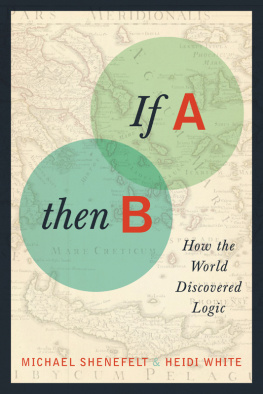
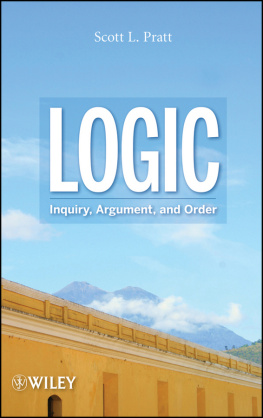

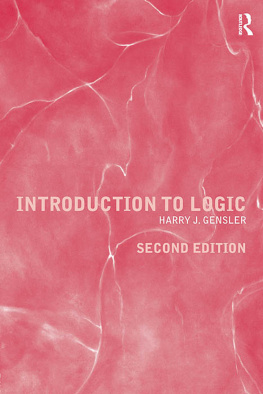

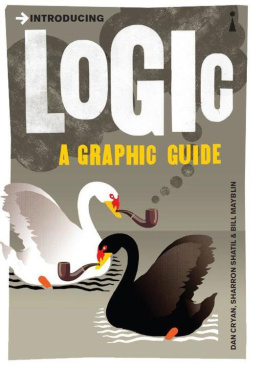
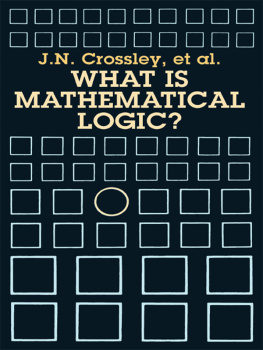




 The paper used in this publication meets the requirements of ANSI/NISO Z39.48-1992 (Permanence of Paper). Printed in Hungary.
The paper used in this publication meets the requirements of ANSI/NISO Z39.48-1992 (Permanence of Paper). Printed in Hungary.